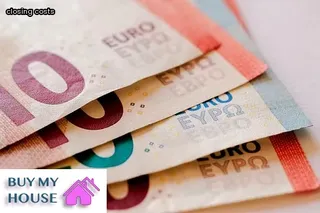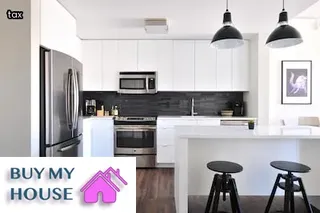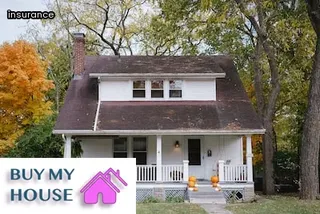Closing costs are an important part of selling a home. Before you begin the process of closing, it’s essential to understand all of the fees associated with selling your house and the impact they have on the final sale price.
Generally, closing costs can include items such as title insurance, transfer taxes, legal fees, escrow fees, and other related expenses. Depending on your location, these fees may range from a few hundred dollars to several thousand dollars.
Additionally, if you’re working with an agent or attorney during the sale process, their commission will also be factored into your total closing costs. When you’re calculating your closing costs for selling a home by owner, it’s important to take into account any potential repairs or improvements that could come up during the inspection process and how that might affect your bottom line.
Finally, don’t forget to factor in any outstanding debt you may have on the property; this is especially true if you have a mortgage that needs to be paid off before transferring ownership. By understanding these various components of closing costs when selling a house by owner, you can make sure that everything is accounted for and ensure that you get the most out of your sale.

When it comes to closing costs, buyers and sellers must know the different fees associated with purchasing or selling a home. Buyers typically cover the majority of closing costs, including prepaid items such as taxes and homeowner’s insurance.
On the other hand, sellers are responsible for paying certain costs associated with the sale of the property, like commissions to real estate agents and any outstanding liens or debts against the property. It is important to understand how these costs can affect your bottom line when selling a house by owner.
Knowing what fees you are likely to incur ahead of time can help you prepare financially for a successful transaction. Additionally, understanding how much you could expect as a seller in terms of total closing costs can provide you with an accurate estimate of your potential profit from the sale.
When selling a house by owner, negotiating or splitting closing costs is an important factor to consider. Many times, buyers will ask that the seller contribute to the closing costs as part of the purchase agreement.
These costs can include inspection fees, title insurance and other associated fees that are necessary for finalizing the sale. As a seller, you may be able to negotiate who pays what portion of these costs, or even split them evenly with the buyer.
It is important to understand all of the fees associated with closing so that you can ensure that you are getting a fair deal out of any negotiations. Additionally, it is always helpful for both parties to have legal advisors on hand who can review any agreements in order to make sure all terms are understood prior to signing.
Understanding your negotiation options when it comes to closing costs is key in making sure your FSBO sale goes as smoothly as possible.

When selling a house by owner, or For Sale By Owner (FSBO), the seller is responsible for paying most of the closing costs associated with the sale. These costs typically include title insurance and recording fees, transfer taxes, homeowner's insurance, and any prepaid interest that may be due.
Depending on the buyer's preference and in some cases the state law, it is common that both parties pay the closing costs equally. As such, sellers should expect to pay between 3-7% of the purchase price in closing costs.
It is important to note that each state has different laws regarding who pays what percentage of these closing costs so it is critical to research local laws before entering into an agreement. Additionally, some buyers may be willing to negotiate and agree to cover part of the cost depending on how motivated they are to purchase your home.
When selling a house by owner, covering closing costs is a necessary expense. As the seller, you have various options to cover these costs without having to pay out of pocket.
One way to cover some of your own closing costs is to increase the asking price on your home. This could either be a flat fee added to the home’s final sale price or an increase in commission for your real estate agent.
Another option is to negotiate with the buyer and ask them to contribute towards your closing costs as part of the purchase agreement. Additionally, many lenders provide certain financing programs that may include incentive packages that can help offset some of the closing expenses as well.
You should inquire with your lender about these options and determine how they will impact your final sale price and bottom line. Finally, if you are able to come up with available cash, you could consider using it as a means to cover your own closing costs when selling a house by owner.

When selling a house by owner, there are other considerations to take into account beyond just closing costs. Property taxes, insurance premiums, and utility bills can all be transferred from seller to buyer.
Additionally, if the seller is still paying down a mortgage on the property, they need to check with their lender to ensure that the loan balance is paid off in full or to see if any additional fees apply. Knowing the local laws and regulations about selling a house without an agent is important as well.
Finally, it's wise for both the buyer and seller to consult an attorney before signing any agreements so that everyone involved is aware of their rights and responsibilities.
When selling a house by owner, estimating the closing costs is an important step in the process. Knowing what to expect ahead of time can help you better prepare and budget for the sale.
The closing costs associated with a home sale typically include the title search fee, deed preparation fee, notary fees, transfer taxes, recording fees, and any prepaid or prorated amounts such as taxes or homeowners association dues. The seller typically pays these costs unless otherwise negotiated as part of the sale agreement.
Additionally, there may be additional costs for title insurance policies or other services that need to be performed prior to closing. By understanding all of these fees associated with a home sale and factoring them into your budgeting plans, you will be better prepared when it comes time to close on your house.

Closing costs can be a major expense when selling a house by owner, but understanding the different types of costs involved can help you plan accordingly and give you peace of mind when it comes time to close. Common examples of closing costs for sale by owner (FSBO) include title insurance premiums, escrow fees, recording fees, transfer taxes, document preparation fees and prorated property taxes.
Title insurance premiums are typically the largest closing cost associated with FSBO sales. This is an insurance policy that protects both the seller and buyer from potential financial losses resulting from disputes over the title to the property.
Escrow fees cover any services related to the transfer of ownership including preparing documents and transferring money. Recording fees are paid to a county recorder’s office for filing paperwork associated with transferring a deed or mortgage note.
Transfer taxes are real estate taxes imposed on buyers or sellers when a deed is transferred and document preparation fees cover services such as preparing loan documents or deeds for signing. Lastly, prorated property taxes refer to any remaining unpaid property taxes due at closing that need to be split between the buyer and seller based on how long each party has owned their respective portion of the property.
Taking these costs into consideration prior to listing your home for sale can help make sure you’re adequately prepared before going through with an FSBO transaction.
Closing costs are fees that must be paid to the mortgage lender or other third parties involved in the sale of a house by the owner. These costs can vary depending on the type of transaction and the state where it takes place.
Generally, closing costs are divided into two categories: those paid by the buyer and those paid by the seller. Buyer’s closing costs include things such as title insurance, loan origination fees, appraisal fees, credit report fees, and points (a percentage of the amount borrowed).
Seller’s closing costs typically involve transfer taxes, title search fees, attorney’s fees, settlement charges associated with selling a home, and any prepaid items such as property taxes or homeowners insurance that need to be refunded to the seller. It is important for sellers to understand their individual state's laws pertaining to closing costs so they can accurately estimate their total cost for selling a house.
Additionally, sellers should also be aware of any additional costs that could arise during negotiations with buyers or unforeseen expenses related to outstanding mortgages on their property.

When selling a home by owner, it is essential to understand the closing costs associated with the transaction. One of the best ways to get an accurate estimate of these costs is to use a home seller’s closing cost calculator.
These calculators can be found online and often provide a breakdown of the expected fees and payments related to the sale. It’s important to remember that closing costs do not include real estate agent commissions or any other fees required for a successful sale.
Closing cost calculators can also help home sellers make informed decisions on how much to set their asking price at or if they should negotiate certain fees with potential buyers. However, certain calculations are only available from experienced professionals in the field, such as title companies, mortgage brokers and attorneys, so it may be necessary to seek out expert advice in order to get an accurate estimate.
When you decide to sell your house by yourself, also known as for sale by owner (FSBO), you need to be aware of the closing costs associated with it. Closing costs can be a significant expense that you have to pay in order to complete the sale, but there are ways to reduce them.
Before listing your home, investigate all of the fees that may be involved and learn about any applicable discounts or incentives from lenders or title companies. Additionally, look into who is responsible for paying which fees as some can be split between seller and buyer or paid entirely by one side.
You may also want to consult with a real estate attorney regarding any local closing cost rules or regulations as they could help you find ways to save money on the transaction. Furthermore, if you have already listed your home and are ready to close, ask if there are any discounts available for paying in cash, or inquire about lowering certain fees if possible.
Finally, look out for any additional charges that could pop up during closing so that you can factor them into your budget accordingly.

When selling a house by owner (FSBO), it is important to understand which fees you are responsible for paying. Closing costs can vary significantly depending on the state, but typically include fees associated with the transfer of title, such as title insurance and transfer taxes.
Additionally, you may be responsible for paying any liens or back taxes that are attached to the property. It's important to research all applicable fees in your area so that you know exactly what you'll be paying before closing the sale.
You should also factor in other costs like origination fees from a lender, document preparation fees from an attorney, and any recording expenses from your county's office. It's best to get an estimate of all potential closing costs from a real estate attorney or professional so that there are no surprises when it comes time to close the sale.
A seller may refuse to pay certain closing costs when selling a house by owner, but it is important to understand the implications of this decision. It is important to discuss any plans to not pay these costs with a real estate attorney, as there could be legal implications associated with such a refusal.
Furthermore, refusing to pay certain closing costs may deter potential buyers from making an offer as they may not have the financial means or interest in assuming that responsibility. It's also important to consider how refusing certain closing costs can impact negotiations with potential buyers.
If sellers are unwilling to cover certain costs, buyers may attempt to negotiate a lower asking price instead. With all of this in mind, sellers should carefully review their options and discuss their concerns with an experienced real estate attorney before making any decisions about refusing closing costs when selling a house by owner.

When selling a house by owner, you may be wondering what kind of closing fees you should expect and if they will be higher or lower than traditional sales. Generally speaking, there are many factors that can affect the final amount due at closing when selling a home on your own.
For starters, most of the costs associated with a standard real estate transaction still apply to do-it-yourself (DIY) sales, such as title insurance and transfer taxes. However, DIY sellers can save money by not having to hire a real estate agent to handle the sale.
Additionally, because DIY closings often involve fewer parties (such as attorneys or agents), the administrative costs may be lower than for those involving multiple parties. Ultimately, it is important to do your research and understand all the relevant closing costs before making a decision on how to proceed with selling your home.
Accurately calculating your own closing costs as a seller can be a complex process. It is important to understand all of the costs involved in selling a house by owner and how to correctly calculate them.
When selling a house, some of the most common closing costs include real estate commissions, title insurance, transfer taxes or fees, prepaid items, and other miscellaneous charges. Real estate commissions are typically paid by the seller and will vary depending on the state in which you live.
Title insurance is an insurance policy that protects against any financial losses due to title defects or liens on the property. Transfer taxes and fees are also imposed by state or local governments for recording the deed of sale with your county recorder's office.
Prepaid items can include taxes, homeowners' association dues, and mortgage interest payments that must be paid up-front prior to closing. Lastly, other miscellaneous fees may apply depending on your situation including inspection fees, appraisals, document preparation fees, attorney’s fee, discount points and more.
To accurately calculate your personal closing costs when selling a house by owner it is important to research all applicable fees associated with the transaction in order to make an informed decision and budget accordingly.

When selling a home, closing costs are an important factor to consider. They can often add up quickly and leave homeowners with little to no profit from the sale of their house.
As a homeowner looking to sell their property, there are several tips that can help you reduce your closing costs and get the most value out of your sale. Firstly, shop around for the best deals when it comes to services like title insurance and legal fees.
Doing research and comparing rates can help you save hundreds or even thousands of dollars in fees. Secondly, negotiate with potential buyers on who pays which fees associated with closing and ensure that all terms are clearly communicated in writing.
Lastly, consider offering incentives such as covering some of the closing costs yourself as a way to attract buyers. By following these tips, homeowners can minimize their closure fees while maximising the value they get out of their home sale.
When selling a house on your own, also known as For Sale By Owner (FSBO), it is important to understand the closing costs associated with the sale. One of these costs is earnest money, which is held by a neutral third party like a title company or attorney.
The purpose of earnest money is to show that you are serious about buying or selling the property. Both buyers and sellers should determine who will hold the earnest money when negotiating the transaction.
It's important to note that if either party fails to follow through on their obligations, the deposit can be forfeited. Selling your house on your own can be an intimidating process, but understanding all of the details involved in closing costs can help make it easier and more successful.
Knowing who holds earnest money in an FSBO transaction is just one part of this process.

When selling a house by owner, it is important to understand who has the most closing costs: buyer or seller? Generally, the buyer has more closing costs than the seller. The buyer is responsible for paying lender fees, title related fees, recording fees and other miscellaneous fees associated with obtaining a mortgage.
Additionally, buyers are typically responsible for prepaid items such as taxes, homeowner's insurance and interest payments. While these costs can vary from state to state, they generally range between 2% - 5% of the purchase price of the home.
On the other hand, sellers have fewer closing costs but must still be prepared for expenses such as transfer taxes, real estate agent commissions (if applicable), loan payoffs and repairs required by either the buyer or lender. Generally speaking, these costs amount to approximately 8% - 10% of the sale price of the home.
As you can see, in most cases buyers have more closing costs than sellers when selling a house by owner.
When selling a house by owner, closing costs can vary from state to state and even from county to county. Generally, closing costs are estimated between 2-5% of the home’s sale price.
These costs include fees for title insurance, appraisal, inspection, recording of documents, attorney services, and other miscellaneous charges. Homeowners may also be responsible for prepaid taxes and insurance.
In addition to these closing costs, sellers may have to pay any outstanding mortgages or liens on the home as well as any unpaid property taxes. It is important to factor in all of these expenses when determining the total out-of-pocket cost of selling a house by owner.
Closing a sale on a house can be a complicated process for those who don't understand the steps. As a seller of a house by owner, it is important to know the ins and outs of closing costs.
This includes understanding what fees must be paid at the time of closing, along with having an accurate knowledge of how much money will be needed throughout the entire transaction. It is also important to understand any taxes or other paperwork that needs to be filed during the sale.
Knowing these various details can ensure that you have taken all necessary steps needed when selling a house by owner. Additionally, gathering all necessary documents such as titles and deeds ahead of time can help to make the process smoother for everyone involved in the sale.
With proper preparation, closing on a house does not need to be stressful!.